
FACULTY OF COMMUNICATION
Department of Cinema and Digital Media
CDM 301 | Course Introduction and Application Information
| Course Name |
Film Production I
|
|
Code
|
Semester
|
Theory
(hour/week) |
Application/Lab
(hour/week) |
Local Credits
|
ECTS
|
|
CDM 301
|
Fall/Spring
|
4
|
4
|
6
|
12
|
| Prerequisites |
|
|||||||
| Course Language |
English
|
|||||||
| Course Type |
Service Course
|
|||||||
| Course Level |
First Cycle
|
|||||||
| Mode of Delivery | - | |||||||
| Teaching Methods and Techniques of the Course | DiscussionCritical feedbackJuryPerformanceLecture / Presentation | |||||||
| Course Coordinator | - | |||||||
| Course Lecturer(s) | ||||||||
| Assistant(s) | - | |||||||
| Course Objectives | This course will teach advanced digital filmmaking skills with lectures, screenings, discussions and hands-on practice in studio and in the field. Focus is on sharpening & introducing advanced skills in pre-production, production, and post-production. In addition, the courses will orient students toward a theoretical understanding of visual language and a comprehension of narrative storytelling structure in a cinematic context. |
| Learning Outcomes |
The students who succeeded in this course;
|
| Course Description | This is a studio course comprised of lectures and screenings on pertinent topics as well as hands-on teaching and demonstrations of various techniques and skills for digital filmmaking. There will be individual assignments pertaining to story development and translating ideas and concepts into visual language. In addition, there will be individual in-class presentations, assignments and a post-production assignment. |
|
|
Core Courses | |
| Major Area Courses |
X
|
|
| Supportive Courses | ||
| Media and Management Skills Courses | ||
| Transferable Skill Courses |
WEEKLY SUBJECTS AND RELATED PREPARATION STUDIES
| Week | Subjects | Related Preparation |
| 1 | Course Introduction | Bring a short film |
| 2 | Initial short film ideas | Reading: — Mascelli, Joseph V. - Five C's of Cinematography, Silman-James Press, (2005), Chapter 1, pgs. 11 – 67. |
| 3 | Introduction to advanced camera equipment (camera rig, slider and focus ring) | |
| 4 | Introduction to advanced cameras 1: GH5 | Assignment 1: Treatment Reading: — Edgar-Hunt, Robert, Marland, John, Rawle, Steven – The Language of Film, AVA Publishing, (2010), “Narrative”, pgs. 38 – 57. |
| 5 | Introduction to advanced cameras 2: New BMPCC / Pre-production | Screenplay – first draft |
| 6 | Introduction to advanced cameras 3: Sony / Pre-production lecture | Assignment 2: Camera assignment |
| 7 | Lighting Technics / Pre-production | Assignment 3: Dossier / Includes final screenplay |
| 8 | Sound recording techniques Individual Project consultations | |
| 9 | Production / project consultations | |
| 10 | Production continued | Raw footage review |
| 11 | Post Production 1 / Editing | 1st Rough Cut Reading: Murch, Walter – In The Blink of an Eye, Silman-James Press, (2001), pgs. 1 – 28. |
| 12 | Post-Production 2 / color grading | 2nd Rough Cut |
| 13 | Post-Production 3 | Fine cut with subtitles, color grading, graphics and credits. |
| 14 | Final cut review | Presentation/Jury |
| 15 | Semester review | |
| 16 | Semester review |
| Course Notes/Textbooks | |
| Suggested Readings/Materials | Edgar-Hunt, Robert.,Marland, John.,Rawle, Steven – The Language of Film, AVA Publishing, (2010) Mascelli, Joseph V. - Five C's of Cinematography, Silman-James Press, Third edition (2005) Murch, Walter – In The Blink of an Eye, Silman-James Press; 2nd edition (2001) |
EVALUATION SYSTEM
| Semester Activities | Number | Weigthing |
| Participation |
1
|
10
|
| Laboratory / Application | ||
| Field Work | ||
| Quizzes / Studio Critiques | ||
| Portfolio | ||
| Homework / Assignments |
1
|
25
|
| Presentation / Jury | ||
| Project |
1
|
45
|
| Seminar / Workshop | ||
| Oral Exams |
1
|
20
|
| Midterm | ||
| Final Exam | ||
| Total |
| Weighting of Semester Activities on the Final Grade |
4
|
100
|
| Weighting of End-of-Semester Activities on the Final Grade | ||
| Total |
ECTS / WORKLOAD TABLE
| Semester Activities | Number | Duration (Hours) | Workload |
|---|---|---|---|
| Theoretical Course Hours (Including exam week: 16 x total hours) |
16
|
8
|
128
|
| Laboratory / Application Hours (Including exam week: '.16.' x total hours) |
16
|
0
|
|
| Study Hours Out of Class |
14
|
4
|
56
|
| Field Work |
0
|
||
| Quizzes / Studio Critiques |
0
|
||
| Portfolio |
0
|
||
| Homework / Assignments |
1
|
55
|
55
|
| Presentation / Jury |
0
|
||
| Project |
1
|
81
|
81
|
| Seminar / Workshop |
0
|
||
| Oral Exam |
1
|
40
|
40
|
| Midterms |
0
|
||
| Final Exam |
0
|
||
| Total |
360
|
COURSE LEARNING OUTCOMES AND PROGRAM QUALIFICATIONS RELATIONSHIP
|
#
|
Program Competencies/Outcomes |
* Contribution Level
|
||||
|
1
|
2
|
3
|
4
|
5
|
||
| 1 | To be able to have fundamental knowledge about narrative forms in cinema, digital and interactive media, and the foundational concepts relevant to these forms. |
X | ||||
| 2 | To be able to create narratives based on creative and critical thinking skills, by using the forms and tools of expression specific to cinema and digital media arts. |
X | ||||
| 3 | To be able to use the technical equipment and software required for becoming a specialist/expert in cinema and digital media. |
X | ||||
| 4 | To be able to perform skills such as scriptwriting, production planning, use of the camera, sound recording, lighting and editing, at the basic level necessary for pre-production, production and post-production phases of an audio-visual work; and to perform at least one of them at an advanced level. |
X | ||||
| 5 | To be able to discuss how meaning is made in cinema and digital media; how economy, politics and culture affect regimes of representation; and how processes of production, consumption, distribution and meaning-making shape narratives. |
X | ||||
| 6 | To be able to perform the special technical and aesthetic skills at the basic level necessary to create digital media narratives in the fields of interactive film, video installation, experimental cinema and virtual reality. |
X | ||||
| 7 | To be able to critically analyze a film or digital media artwork from technical, intellectual and artistic perspectives. |
X | ||||
| 8 | To be able to participate in the production of a film or digital media artwork as a member or leader of a team, following the principles of work safety and norms of ethical behavior. |
X | ||||
| 9 | To be able to stay informed about global scientific, social, economic, cultural, political, institutional and industrial developments. |
X | ||||
| 10 | To be able to develop solutions to legal, scientific and professional problems surrounding the field of cinema and digital media. |
X | ||||
| 11 | To be able to use a foreign language to communicate with colleagues and collect data in the field of cinema and digital media. ("European Language Portfolio Global Scale", Level B1). |
|||||
| 12 | To be able to use a second foreign language at the medium level. |
|||||
| 13 | To be able to connect the knowledge accumulated throughout human history to the field of expertise. |
|||||
*1 Lowest, 2 Low, 3 Average, 4 High, 5 Highest
NEWS |ALL NEWS
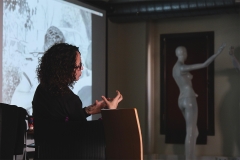
"Working with Found Footage" Workshop Organized with Zeyno Pekünlü
Artist, director, activist and academician Zeyno Pekünlü was the guest of CDM232: Digital Film Studio II.

CDM senior year student Ecem has been selected to the Animation category at Adana Altın Koza Film Festival
CDM 4th-grade student Ecem Çörtle has been selected as a finalist in the National Student Films category of the 30th International Adana
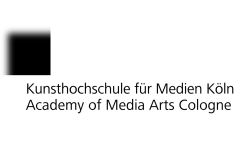
CDM graduate Eylül Berivan Kızılırmak has been accepted to the Cologne Academy of Media Arts
CDM graduate Eylül Berivan Kızılırmak has been accepted to the master's program at the Academy of Media Arts Cologne (Kunsthochschule für Medien Köln).

Traditionalistic CDM End of Year Exhibition EPI.LOG took place in FC Studios
Cinema and Digital Media End of Year Exhibition EPI.LOG 2023, organized as part of IUE Faculty of Communication Exhibition "FC-EX 2023", was
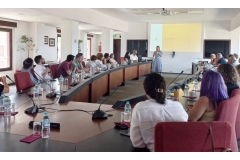
IUE Faculty of Communication Advisory Board members visited our Faculty and Studios on June 22, 2023
IUE Faculty of Communication Advisory Board members Andreas Treske, Ayşe Matay, Barbaros Görgü, Dilek Gappi, Elif Demirci İşleğen, Emine Uysal Berger, Murat
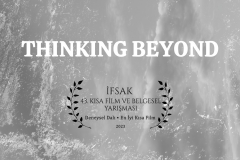
Ataberk awarded at the İFSAK 43rd National Short Film and Documentary Competition
Our third-year student, Ataberk Eyolcu, returned from the 43rd National Short Film and Documentary Competition of İFSAK (Istanbul Photography and Cinema Amateurs
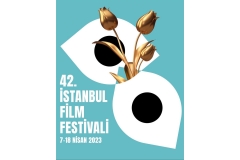
Our third-year CDM student Fikret Başar Kaya was at the 42nd Istanbul Film Festival
Our third year CDM student Fikret Başar Kaya participated as a Young Jury at the 42nd Istanbul Film Festival held on April
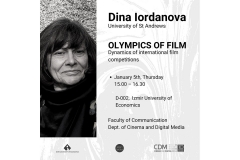
CDM hosted Dina Iordanova
Prof. Dina Iordanova gave a speech titled Olympics of Film: Dynamics of international film competitions on Thursday, January 5, 2023, in D002 at Izmir

